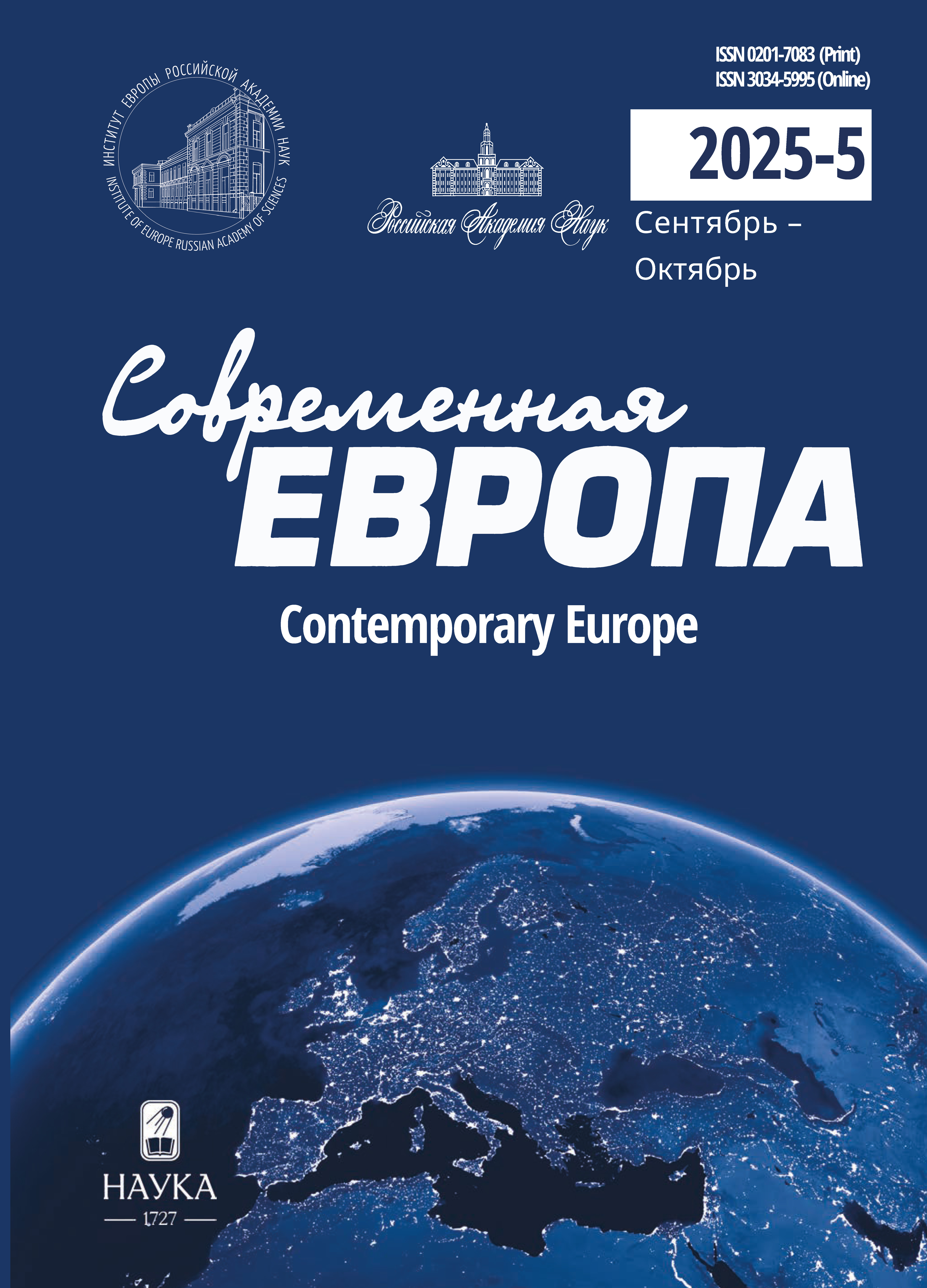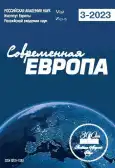Ускоренные университеты: опыт Европы и Азии
- Авторы: Водопьянова Е.В.1
-
Учреждения:
- Институт Европы РАН
- Выпуск: № 3 (117) (2023)
- Страницы: 107-117
- Раздел: Статьи
- URL: https://gynecology.orscience.ru/0201-7083/article/view/652242
- DOI: https://doi.org/10.31857/S0201708323030099
- EDN: https://elibrary.ru/BSOZXO
- ID: 652242
Цитировать
Полный текст
Аннотация
В статье проанализированы примеры успешного становления недавно основанных университетов в Европе, Азии и России с использованием социокультурной методологии, а также сравнительного анализа. Цель исследования - описать социокультурный фон и сравнить особенности вхождения молодых вузов в число мировых лидеров. В статье показано, что наряду с традиционными ресурсными источниками не меньшую роль в достижении эффективности начинает играть повсеместное «ускорение времени», характерное для глобальной эпохи экономики знаний. Установлено, что молодые университеты предстают в качестве актуальной версии ответа на вызовы современной культуры. Эволюция молодого вуза рассмотрена как результат рискованной инновации. Предложена дефиниция ускоренного университета как вуза, достигшего за несколько десятилетий мирового уровня и имеющего неопределенные перспективы.
Об авторах
Елена Викторовна Водопьянова
Институт Европы РАН
Email: veritas-41@yandex.ru
Россия, Москва
Список литературы
- Альтбах Ф., Райсберг Л., Салми Дж., Фрумин И. (ред.) (2022) Ускоренные университеты: соединение идей и денег для достижения академического совершенства. Изд. Дом Высшей школы экономики, М.: 351 с.
- Водопьянова Е.В. (2012) О Сколково и не только о нем. Свободная мысль. № 3/4. С. 60-74.
- Гайгер Р. (2018) Знания и деньги. Исследовательские университеты и парадокс рынка. Изд. Дом Высшей школы экономики, М.: 408 с.
- Салми Д. (2009) Создание университетов мирового класса. Весь мир, М.: 132 с.
- Трофимова И.Н. (2022) Национальные исследовательские университеты: статус и результаты деятельности. Социология науки и техники. Т. 13. № 1. С. 116-129.
- Bertman S. (1998) Hyperculture: the human cost of speed. Praeger, Westport, USA. 288 p.
- Han B. (2022) Hyperculture: Culture and Globalization. Polity, Cambridge, UK. 106 p.
- Hrabovski F.A., Rous R.J., Henderson P.H. (2019) The Empowered University: shared leadership, culture change and academic success. John Hopkins University Press, Baltimore, USA. 320 p.
- Raposo M., Paço A. (2011) Entrepreneurship education: Relationship between education and entrepreneurial activity. Psicothema. Vol. 23. No. 3. P. 453-457. URL: http://www.psicothema.com/pdf/3909.pdf
- Redhead S. (2004) Paul Virilio: Theorist for an Accelerated Culture. University of Toronto Press, Toromto, Canada. 168 p.
- Rosa H. (2015) Social acceleration: A new theory of Modernity. Columbia University Press, N.Y., USA. 512 p.
- Warf B. (2008) Time-Space Compression. Historical geographies. Routledge, London, UK. 272 p.
Дополнительные файлы








